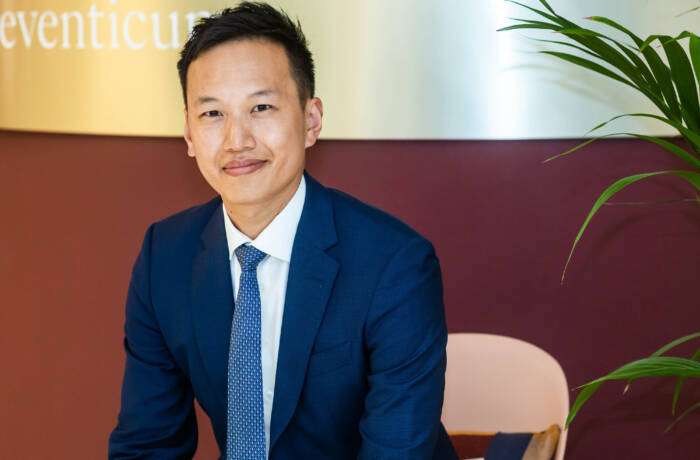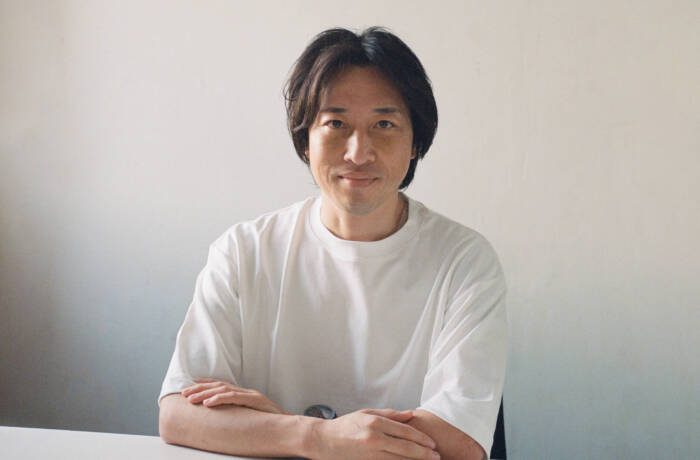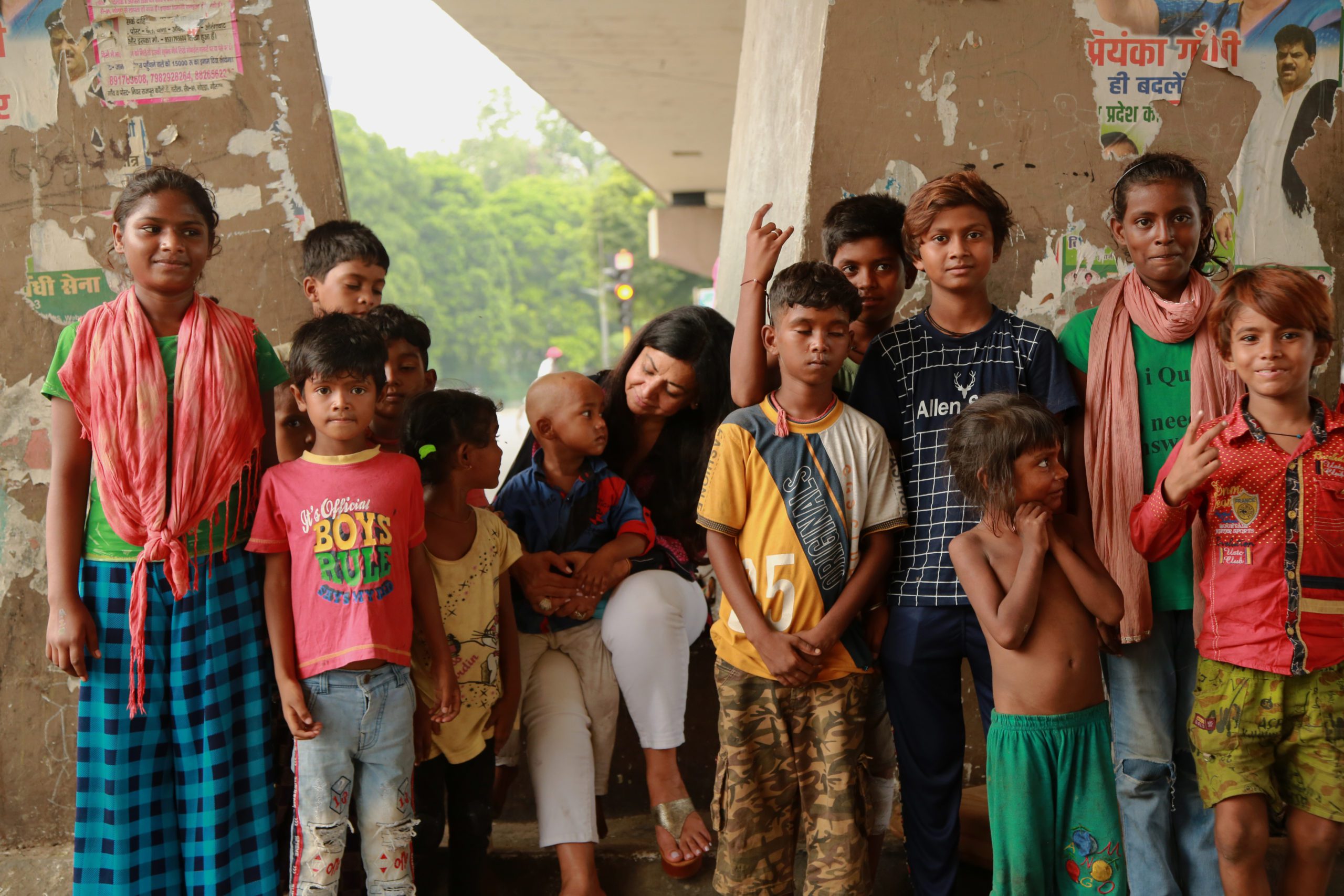
Surina Narula, founder and patron of the UK-based Consortium for Street Children
Based between London and Delhi, Surina Narula has founded philanthropic endeavours as diverse as Jaipur Literature Festival, the Consortium for Street Children, and the TVE Global Sustainability Film Awards, among others. The governing principle underlying them all? A passion for learning and justice. Here, Narula speaks to Samantha Welsh about personal responsibility and the importance of South Asian representation.
Surina Narula is on a mission for social justice. Having dedicated the best part of three decades to delivering aid to women and children in the UK and India, she is also a patron for South Asian art and a fervent advocate for sustainability through the medium of film. If those causes sound disparate, they are deliberately so – for Narula is dedicated to equality above all else.
LUX: When did philanthropy become a way of life for you?
Surina Narula: I don’t think I had anything specifically in mind [when I started]. I just believed in justice and in a fairer world. It all changed when I had to fight for justice for my sister’s murder, which made me think a lot about human rights and justice for all. I realised it’s a very unfair world in India, where only people like us, with money and contacts, get any kind of justice. So, I started advocating for the most vulnerable sections of society. I knew it would take an entire lifetime to make a tiny difference, but it didn’t mean I had to stop enjoying my life. It is a basic responsibility for every able-bodied person to engage and make a difference.
LUX: Your work spans literature festivals to film awards, sustainability to women’s rights. Is there a single philosophy underwriting them all?
Surina Narula: You could say that everything I’m engaged in is interconnected. Everything is for a cause but also satisfies my desire to learn. [That’s why] I started fundraising through art exhibitions, theatre productions and literary festivals. I first began with working for street children through the Consortium for Street Children (CSC), based in London, and then looked at communities supporting children through Plan UK and helping charities like Women and Children First. My focus now is on advocating for environmental causes and global sustainability through the Television for the Environment (TVE). I felt the environmental crisis was becoming the greatest cause of human suffering, with the worst affected always being women and children. My philanthropic journey has been a continuous and evolving process.
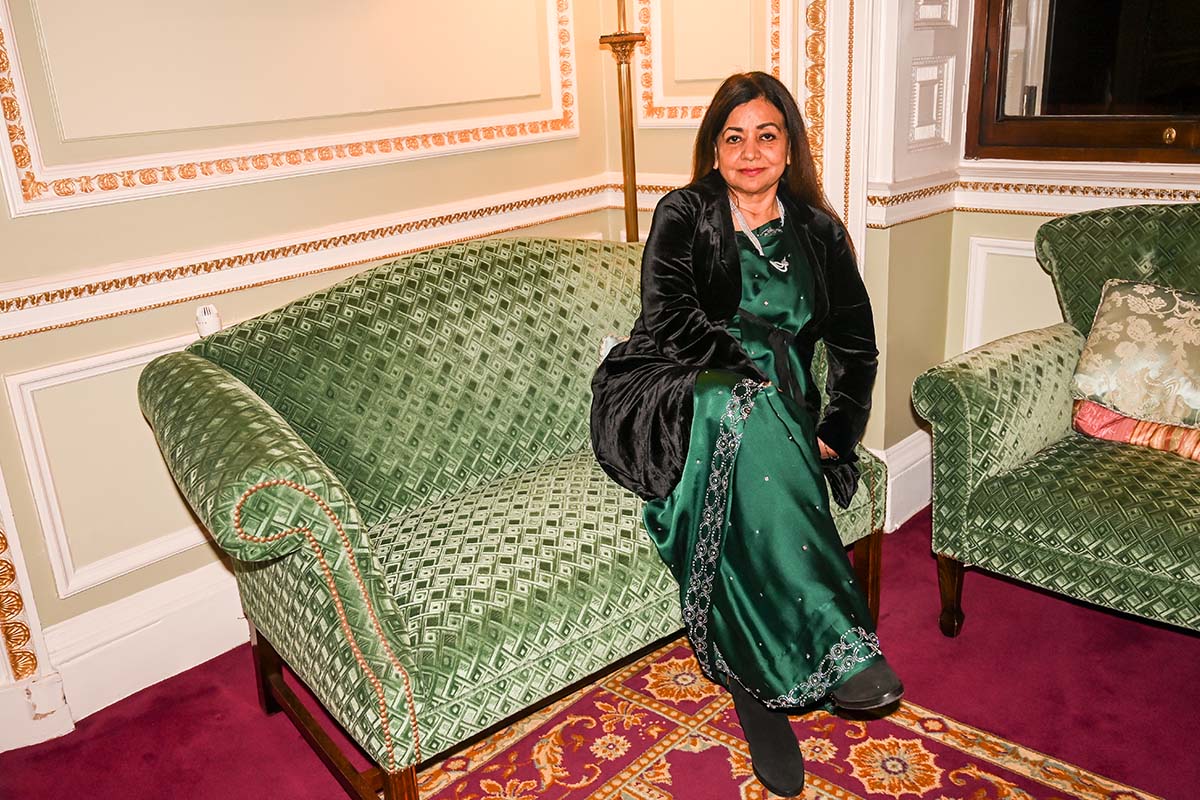
Surina Narula celebrating Diwali at COP26
LUX: Your own involvement in these projects frequently transcends setting up foundations and providing aid. Why is it important that you engage on a deeper, more personal level?
Surina Narula: The personal commitment comes from a love of life. I don’t think the idea of foundations, charity, aid is what excites me; they are a means, not an end. It has been a privilege to be on the boards of many organisations, because I meet amazing people who devote their lives to work for the causes they are passionate about. I love meeting these people and learning from them.
Follow LUX on Instagram: luxthemagazine
LUX: You are a fearless advocate for women’s rights and ask difficult questions around religious strife, marriage and prostitution. Does it ever feel like you are fighting a losing battle?
Surina Narula: It is very difficult to measure success in these areas, but unless we have the courage to question bad practices, how can we start a dialogue? By starting a dialogue, however difficult, we can start the process of change.
LUX: Is that how the Difficult Dialogues initiative came about?
Surina Narula: Difficult Dialogues is part of a wider agenda of regional development which aims to involve the voices of key stakeholders in the process of policy formulation. Policy is eventually what really changes the plight of people, and this process needs to be structured, transparent and more inclusive. We organise events debating ‘difficult’ issues with Government, policy formulators, academics, corporates, NGOs and last mile implementers of policy, before making specific policy recommendations for the area.
LUX: What reforms have your teams been able to effect?
Surina Narula: Thanks to the work of the CSC, we have succeeded in adding a general comment in the UN Rights of the Child, guaranteeing that whenever governments discuss the welfare of children this expressly includes street children. We have also had success with Plan International, where our teams work hard in law reform to support the rights of women and girl children in the UK and India. Through Women and Children First, our teams are effectively reducing the mortality rate in newborn children in parts of Africa.
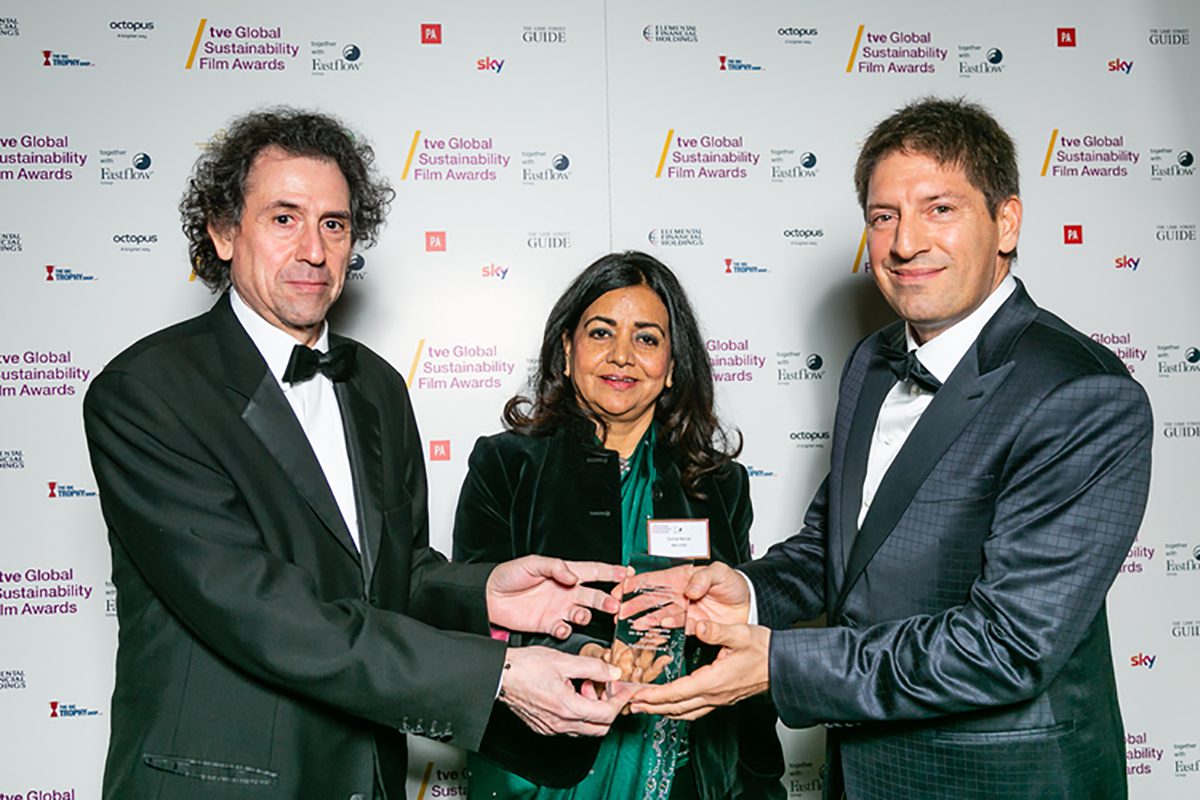
In 2012 Surina founded the tve Global Sustainability Film Awards. Left to right: Giorgos Lemos, Surina Narula and Nikos Fragos. Producers of, ‘Amerika Square’, the film won the Founder’s Award at the GSFA2018
LUX: Your work is heavily focused on South Asia, as well as the UK. Why is that a priority for you?
Surina Narula: I believe it’s best to start with what you know. South Asia is closer to the language and culture I grew up in. I learned about South Asia through western writers in English. I also read Thomas Hardy and Shakespeare. They were great, of course, but I grew up imagining I was Hardy’s Tess, not Vikram Seth’s Lata. Now, I am much clearer about my own identity and have learned so much about people in our region.
LUX: Was this the motivation behind the DSC Prize for South Asian Literature?
Surina Narula: Yes, it’s about sharing the cultural richness and diversity of South Asia, and bringing our literary talents to a global audience. We encourage a wide range of entrants: the Prize is open to writers from anywhere in the world provided they write about our region. Over the last decade, it has become the definitive international prize focused on South Asian fiction writing.
Read more: Philanthropy: James Chen on providing vision for all
LUX: How do you develop such nuanced conversations across a region with so much diversity?
Surina Narula: If you know this region, it’s clear there is great diversity in language and dress. The Prize is focused on nine South Asian countries which include India, Pakistan, Sri Lanka, Bangladesh, Nepal, Bhutan, Myanmar, Maldives and Afghanistan. Translation has helped capture the nuance of conversations; we also celebrate our diversity by physically presenting the award in different countries by rotation.
LUX: How does neo-colonialism intersect with the storytelling of that region?
Surina Narula: Every nation in the South Asian region has suffered through our shared colonial history, as well as civil and religious conflict. The entire region is connected in this way. Before Independence, English literature and the English language were prevalent because of colonialism: we were forced to speak and write in the language of the conqueror. So the DSC Prize brings to the English-speaking world a deeper understanding of the vibrancy and richness of South Asian culture.
LUX: The TVE Global Sustainability Film Awards celebrates a different kind of creativity. Tell us more about that.
Surina Narula: Television for Environment (TVE) has been at the forefront of amplifying messages around sustainability for the last 36 years. My journey with them began ten years ago, when I was introduced to them as a fundraiser. The organic natural next step for us was to give awards for well-made environmental films, leading to the conception of the annual TVE Global Sustainability Film Awards. The awards are unique because film submissions are judged not only on the quality of their content but on their message and impact. Our greatest success was when we highlighted the film My Octopus Teacher at the TVE GSFA 2020 and won the Oscar for the best documentary.
LUX: How would you like to see the next generation taking forward your legacy?
Surina Narula: One of the greatest Sikh Gurus, Guru Gobind Singh, once said, ‘Shiva, grant me this boon! May I never, ever shirk from doing good deeds!’. He acknowledged how hard it is always to do the right thing. This is because life is all about choices: we are always trying to make choices that help us enjoy our lives to the full and to fulfil our personal responsibilities. I think the next generation has a lot going for it [in this sense]. Access to technology and economic independence makes young people more capable. If they can develop and remain compassionate, the world will be a better place.
Find out more: jaipurliteraturefestival.org
As with all of our philanthropists, readers who have their own foundations and philanthropic interests are encouraged to reach out to our interview subjects and their institutions directly.

